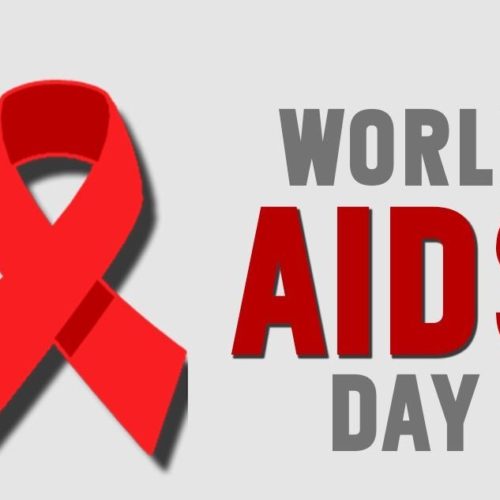A TON OF APPRECIATION
In many parts of the world, it is still a crime to be openly homosexual or to engage in same-sex coupling. For instance, Nigeria, according to the Research directorate, Canada, (2019), as in other African countries bar South-Africa, is still considered a hostile environment, both in the attitude and behaviour of her citizens as well as in the letters of her laws, to homosexuals (a term still more associated with gay men than other sexual minority groups in Nigeria). According to Pew Research Centre (2013), 98% of surveyed Nigerians believed that homosexuality should be opposed by society. And even more incredibly, in a joint poll by TIERS (The Initiative for Equal Rights) and NOI Polls (2017), 90% of respondents held the view that Nigeria “would be a better country without homosexuals”.
These attitudes and opinions have seen negligible improvement in the last few years as only 7% of Nigerians, in a 2019 follow-up to the 2013 survey by Pew Research, felt that homosexuality should be accepted (Masci and Desilver, 2019). This hostile and sweeping rejection was replicated in even more severe statistics across all African countries, except South-Africa which continues to see a consistent improvement in the general attitude of its citizens towards sexual divergence. The latter is also the first African country to have legalized same-sex marriage since 2006 (Poushter and Kent, 2020). Other African countries, such as Angola, Mozambique, Lesotho, Botswana, and Republic of Seychelles, are also reported to have significantly improved their constitutional tolerance for same-sex union. However, this has not reflected much in the attitude and perception of the general citizenry of these relatively more tolerant states towards sexual divergents.
***
Hello guys,
I’m sure you don’t remember me. I’m Samuel, the desperate student researcher from UI who showed up here some of months ago (November, 2021), soliciting for your responses to my questionnaire. Well, my appeal was not in vain. I was very much impressed by the quick reaction I got as soon as I dropped the word. Thanks largely to you, I was able to meet the deadline and I’m happy to let you all know that I defended my research (MSc) way back in December.
However, I remember I promised to return to share the outcome of the study on this platform. Well, here I am to fulfill that promise. I have condensed the whole project report into a summary of about eight pages (an extract of it is above). If you, however, are interested in the full work, you can message me via my email address below.
I’m also glad to inform you guys that this is not the end of my scientific investigation into matters concerning the LGBTQ populations. As I’m typing this, I’ve commenced work on another study in this area with a colleague of mine. This time around, our interest is in measuring the level of knowledge and the attitude of mainstream mental health stakeholders (clinical psychology lecturers and practitioners, psychiatrists, therapists, and psychology students – graduates and undergrads) towards lesbians, bisexuals, and gay men. We know so much already about the attitude and opinion of the average person about the question of homosexuality, but almost nothing about those of these sets of critical stakeholders. Our thinking is that if there’s going to be a significant shift in general perception, it has to start from these groups of professionals and knowledge workers. However, we first need to gauge the level of ignorance and prejudice to know the scale of what we are dealing with going forward.
Once more, I thank the editor-in-chief for his graciousness and assistance; I also thank Mr. Edwin who showed the courage and willingness to help right from our first anonymous encounter. I would not have been here if he had not offered to introduce me to the Editor. And to every one who helped filled the questionnaire, I say a big thank you.
Thank you guys!
But this is definitely not the last you’ll be hearing from me.
Below is the summary of the project for your reading pleasure.
Samuel Atilola’s Research Summary
Sam.
Email address: Sammyati24@gmail.com
About author
You might also like
REMEMBERING ARPAD MIKLOS (My First Gay Porn Experience)
I recently came across an advice column on Slate.com. And the piece was about a guy wanting to know if it was weird that he still got turned on by
Happy World AIDS Day, Everyone!
As we celebrate #WorldAIDSDay remember to do what you can to spread the message of love and safety, to stop the stigma, and to help a person you know living with HIV/AIDS
Random Questions: To Have A Gay Person As An In-Law
When we talk about issues regarding gay people who enter into heterosexual marriages, whether in commiseration or condemnation, we talk about these issues with the understanding that these people are










3 Comments
trystham
April 29, 19:03I like how the limitations were clearly highlighted. Gives the entire study a complete, yet incomplete feel.
Tobee
April 29, 20:34Well done on this Sam. Very intriguing results, I’m sending you an email.
And I’m with Trystham on this – your limitations are well thought-out, well done. Perhaps you coukd also investigate protective factors in future research. It’s really nice to see LGB research in Nigeria, kudos!
Tobee.
Gore Vidal 01
April 30, 00:02Weldone!